Whether your goal is muscle building, weight maintenance with muscle preservation, or simply creating satisfying and nourishing meals and snacks, elevating your daily protein intake can be a valuable asset. The official Recommended Daily Allowance (RDA) for protein stands at a modest 0.8 grams per kilogram of body weight. However, extensive research and expert consensus indicate that for most individuals, especially those who are physically active, aging, or pursuing weight loss, a higher intake, closer to 1.2 grams per kilogram of body weight, can be more advantageous, particularly in the context of muscle preservation.
While plant-based sources can provide an ample supply of protein, animal proteins are often regarded as superior in quality due to their completeness, encompassing all nine essential amino acids. Moreover, they are generally more readily digested and absorbed by the body compared to plant-based alternatives. Animal proteins come in two primary categories: meat and non-meat. Meats encompass a variety of options such as beef, fish, pork, and poultry, while non-meat sources comprise animal-derived products like dairy and eggs. It's important to note that while certain meat types may be associated with high levels of saturated fat and sodium, others offer a wealth of nutritional benefits, including substantial protein content, as well as essential nutrients like B vitamins, iron, and zinc, all within a few ounces.
For those seeking a convenient means of enhancing their protein intake, registered dietitians endorse the incorporation of these healthful animal proteins, encompassing both traditional meats and non-meat options, into their dietary repertoire. Continue reading to discover these protein-rich choices.
1) Pork Loin
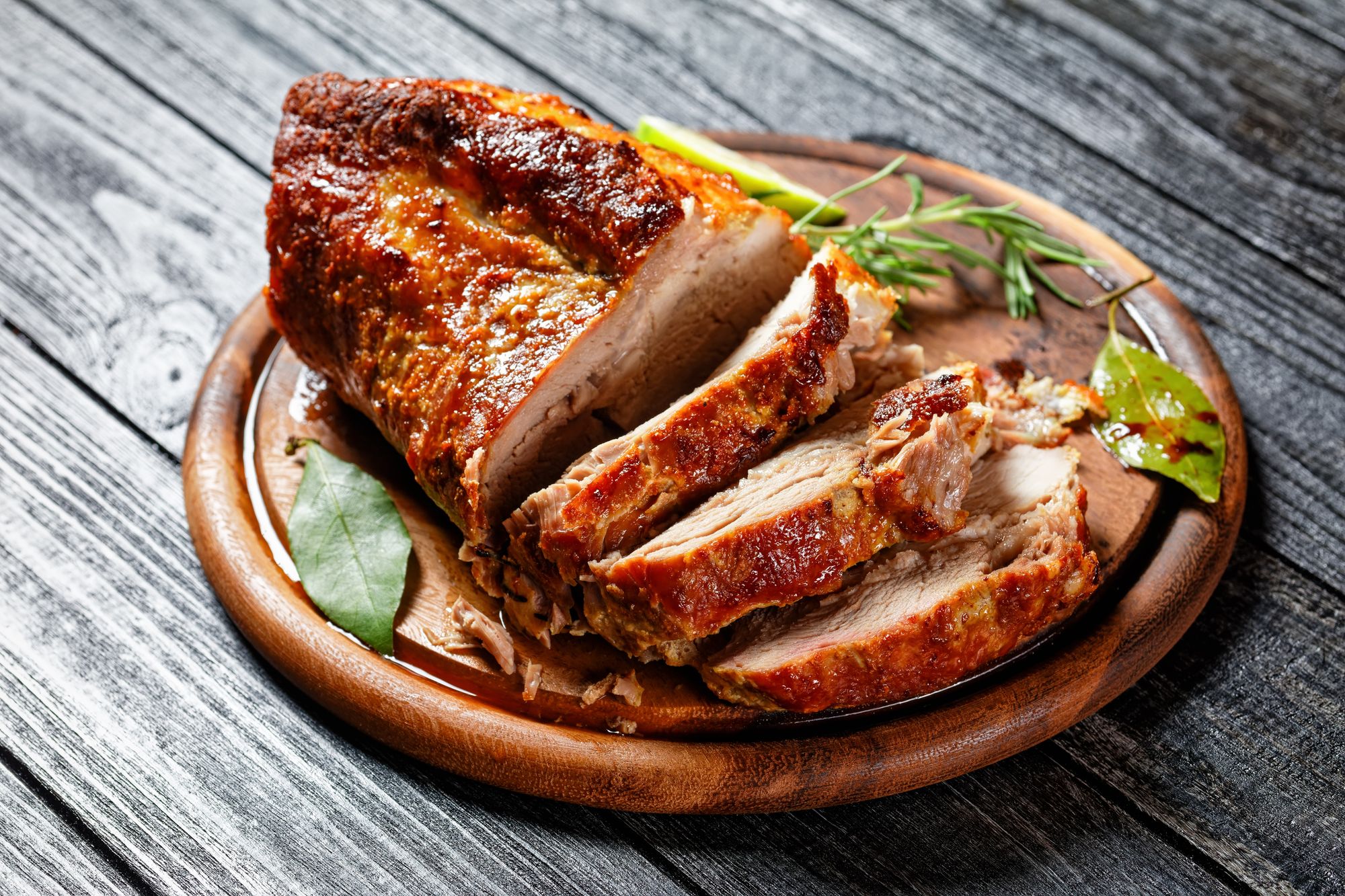
A 3-ounce portion of pork loin contains 163 calories, 7.5 grams of fat (2.4 grams saturated fat), 39 milligrams of sodium, 0 grams of carbohydrates (0 grams of fiber, 0 grams of sugar), and an impressive 22 grams of protein. Pork loin is a valuable source of essential B vitamins, including thiamin, niacin, vitamin B6, and vitamin B12. These B vitamins play crucial roles in energy production and various bodily processes, from DNA synthesis to neurotransmitter production. Given that B vitamins are water-soluble and require daily replenishment, incorporating good sources like pork loin, dark leafy greens, and dairy into your diet is essential. Additionally, a mere 3-ounce serving of cooked pork loin delivers 22 grams of protein and a modest 2.4 grams of saturated fat, representing just 11% of the recommended daily limit.
2) Salmon
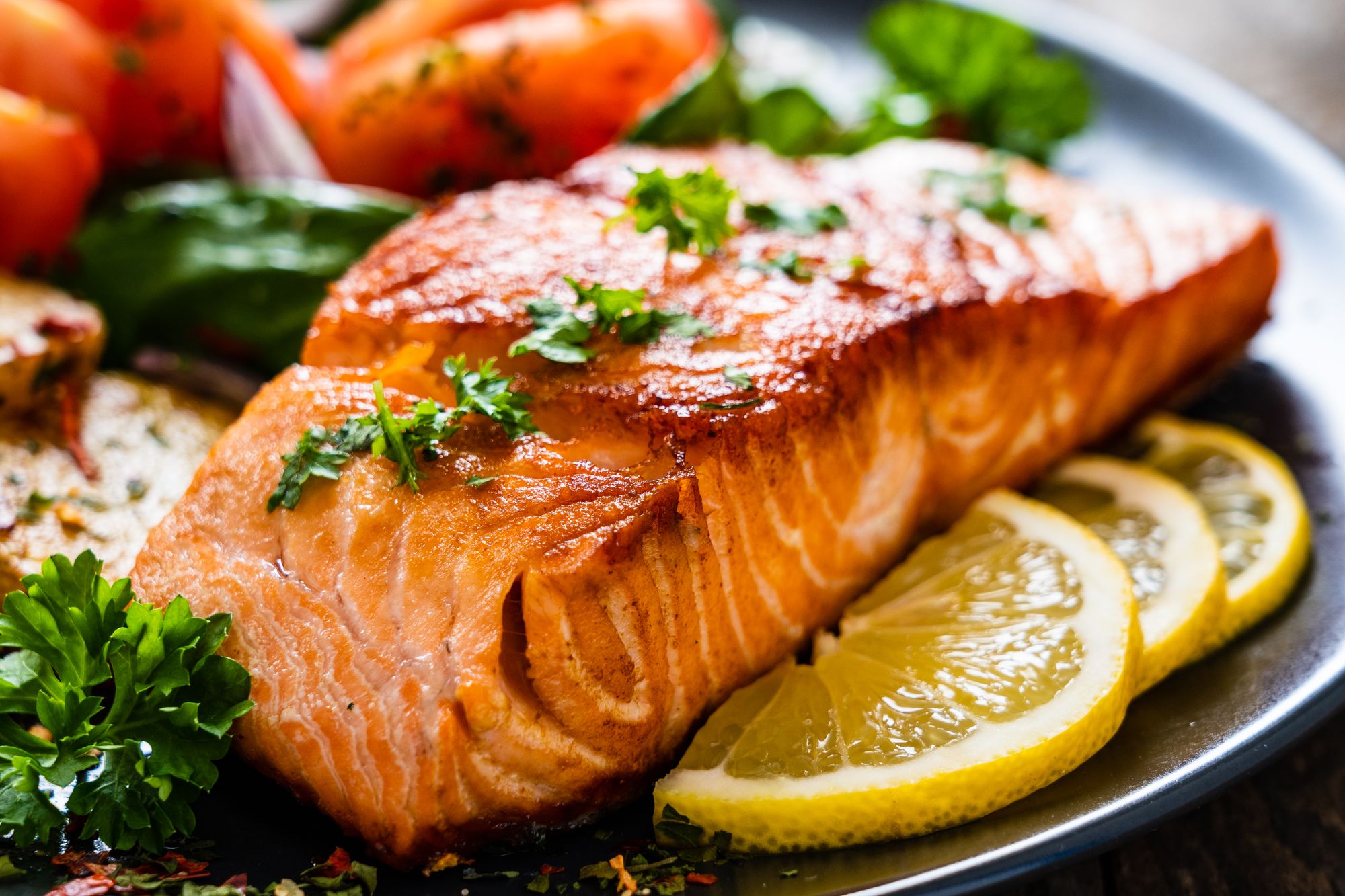
Salmon, whether baked, smoked, or canned, serves as a versatile and nutritious animal protein. With 155 calories, 7 grams of fat (1 gram saturated fat), 47 milligrams of sodium, 0 grams of carbohydrates (0 grams of fiber, 0 grams of sugar), and 21.6 grams of protein per 3-ounce serving, it's a protein powerhouse. Jenna Volpe, RD, a functional registered dietitian from Whole-Istic Living, emphasizes that salmon not only offers ample protein but is also rich in heart-healthy omega-3 fatty acids, crucial for heart health and even mood regulation. A 3-ounce serving of Wild Atlantic Salmon contains 7 grams of fat, primarily comprising these anti-inflammatory omega-3 fatty acids, which are beneficial for skin, joint health, and overall well-being.
3) Extra Lean Ground Beef
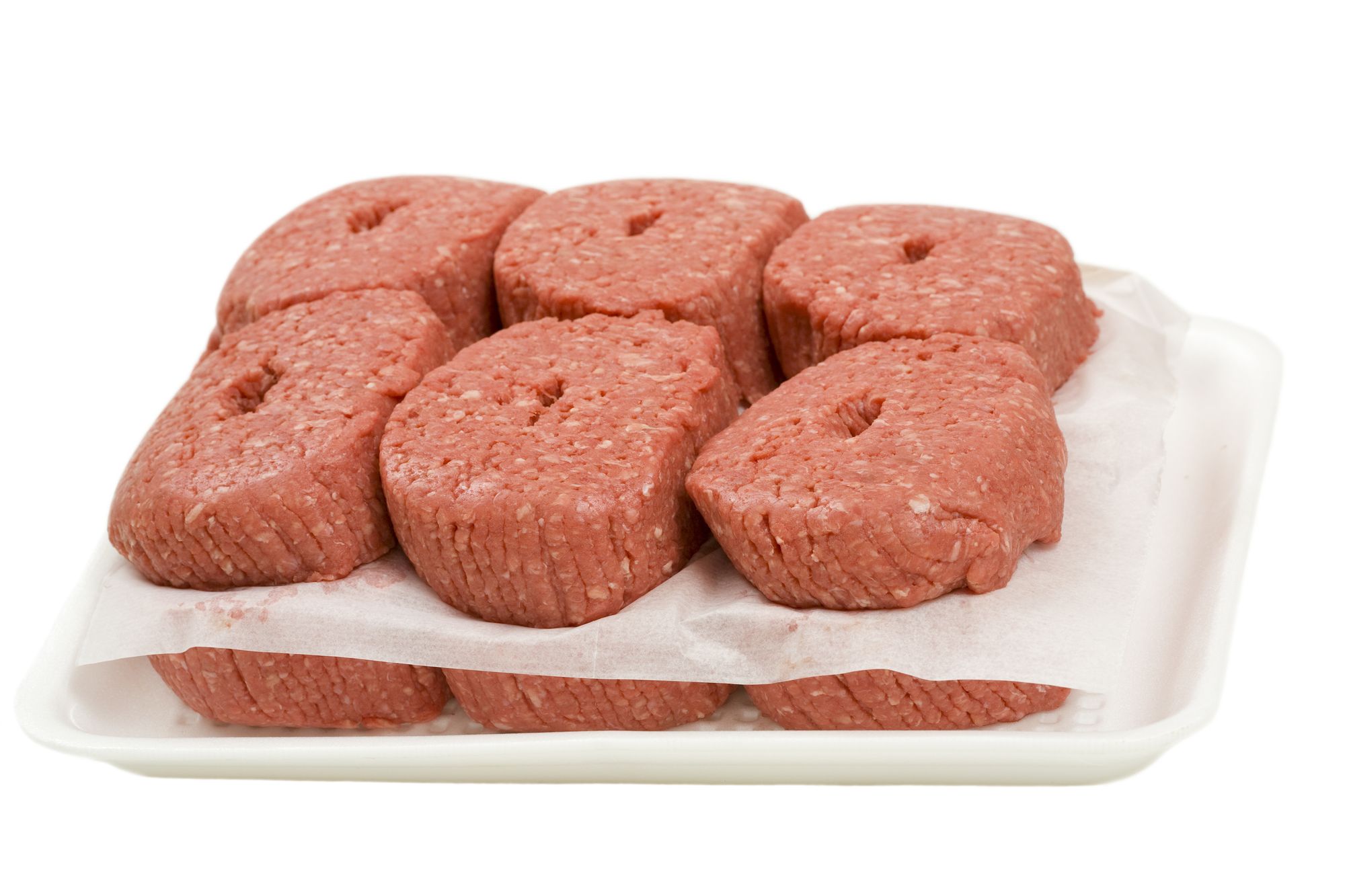
While red meat can sometimes be high in unhealthy saturated fat, extra lean ground beef provides the protein, vitamins, and minerals inherent to beef with minimal fat content. It's an accessible and budget-friendly option that suits a variety of dishes, from stews to tacos and burgers. Extra lean ground beef typically contains at least 90% lean meat with 10% or less fat. Amber Trejo, MS, RDN, CDN, CPT, founder of Naked Wellness Coaching, underscores the nutritional value of beef, which includes essential nutrients such as iron, zinc, B-vitamins like B12 and niacin, and selenium. A 3-ounce serving of ground beef delivers 22 grams of protein, 12% of the daily value (DV) for iron, and an impressive 50% of the DV for zinc.
4) Sardines

Tinned fish, particularly sardines, is experiencing a resurgence in popularity as a budget-friendly and convenient protein source. A 3.75-ounce can of sardines contains 191 calories, 10.5 grams of fat (1.4 grams saturated fat), 282 milligrams of sodium, 0 grams of carbohydrates (0 grams of fiber, 0 grams of sugar), and a substantial 22.6 grams of protein. Sardines are rich in essential nutrients, including protein, vitamin B12, vitamin D, calcium, and minerals, according to Wan Na Chun, MPH, RD, CPT of One Pot Wellness. This tiny fish provides 27% of the DV for calcium, crucial for bone health and skin vitality, and is a robust source of omega-3 fatty acids, known for their heart disease risk reduction and improved blood vessel function.
5) Cod
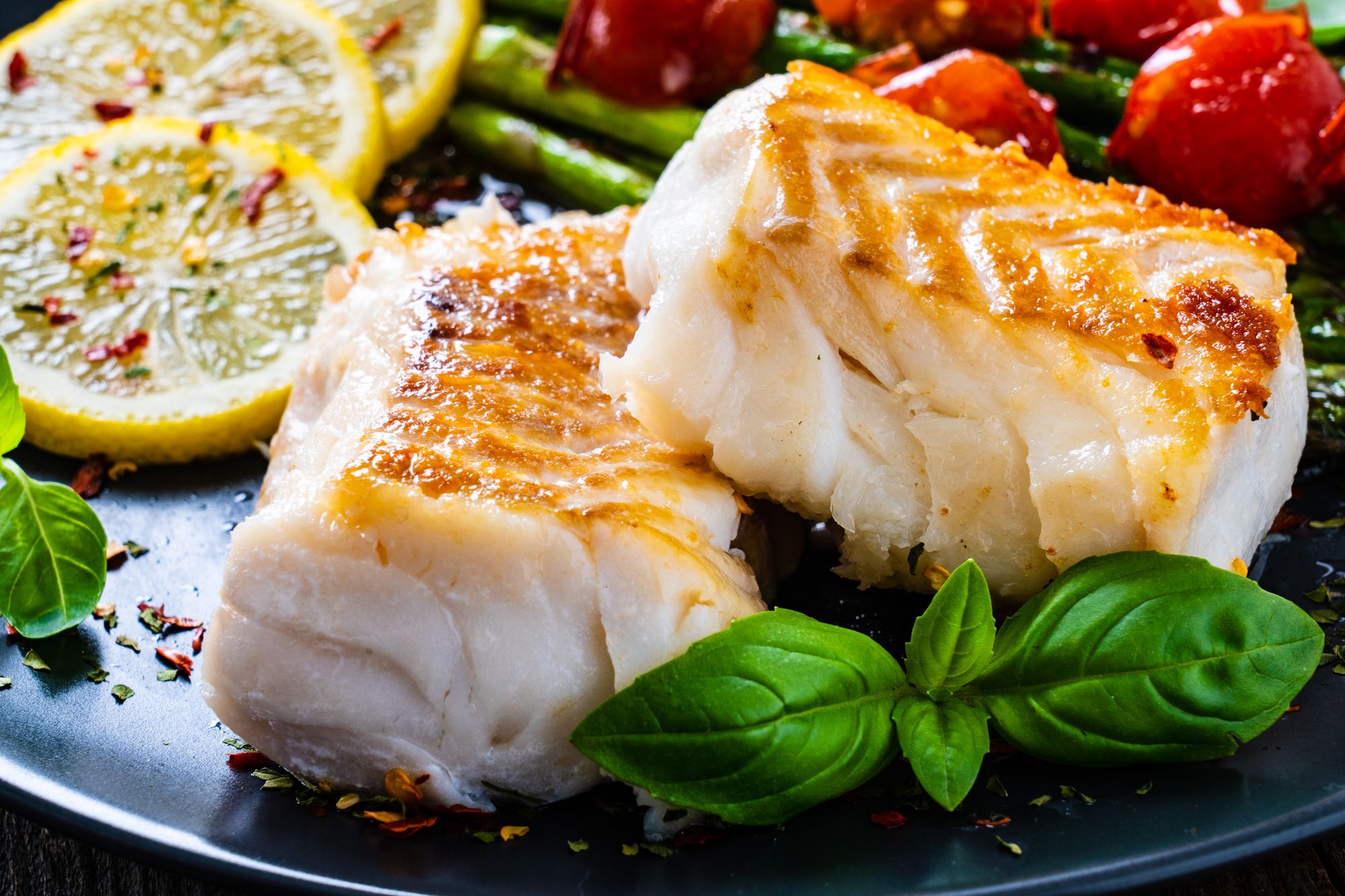
If you prefer a milder fish taste and want to increase your seafood intake, cod is an excellent high-protein seafood choice. A 3-ounce serving of cod contains just 90 calories, 0.7 grams of fat (0.1 gram saturated fat), 66 milligrams of sodium, 0 grams of carbohydrates (0 grams of fiber, 0 grams of sugar), and a notable 19 grams of protein. The USDA recommends at least two servings of seafood per week, each portion being around 3-4 ounces of fish or shellfish. However, a significant portion of the American population, potentially up to 90%, falls short of meeting this guideline, says Caroline Thomason, RD, CDCES, a dietitian in Washington, D.C., and nutrition partner to Alaskan Seafood. Cod's mild flavor makes it an appealing choice for those who may not enjoy the strong taste of salmon or sardines, and its low fat content, minimal calorie count, and high protein content (19 grams per 3-ounce serving) make it an excellent, health-conscious dinner option.
Plus: 2 Meat Free Animal Proteins
1) Greek Yogurt
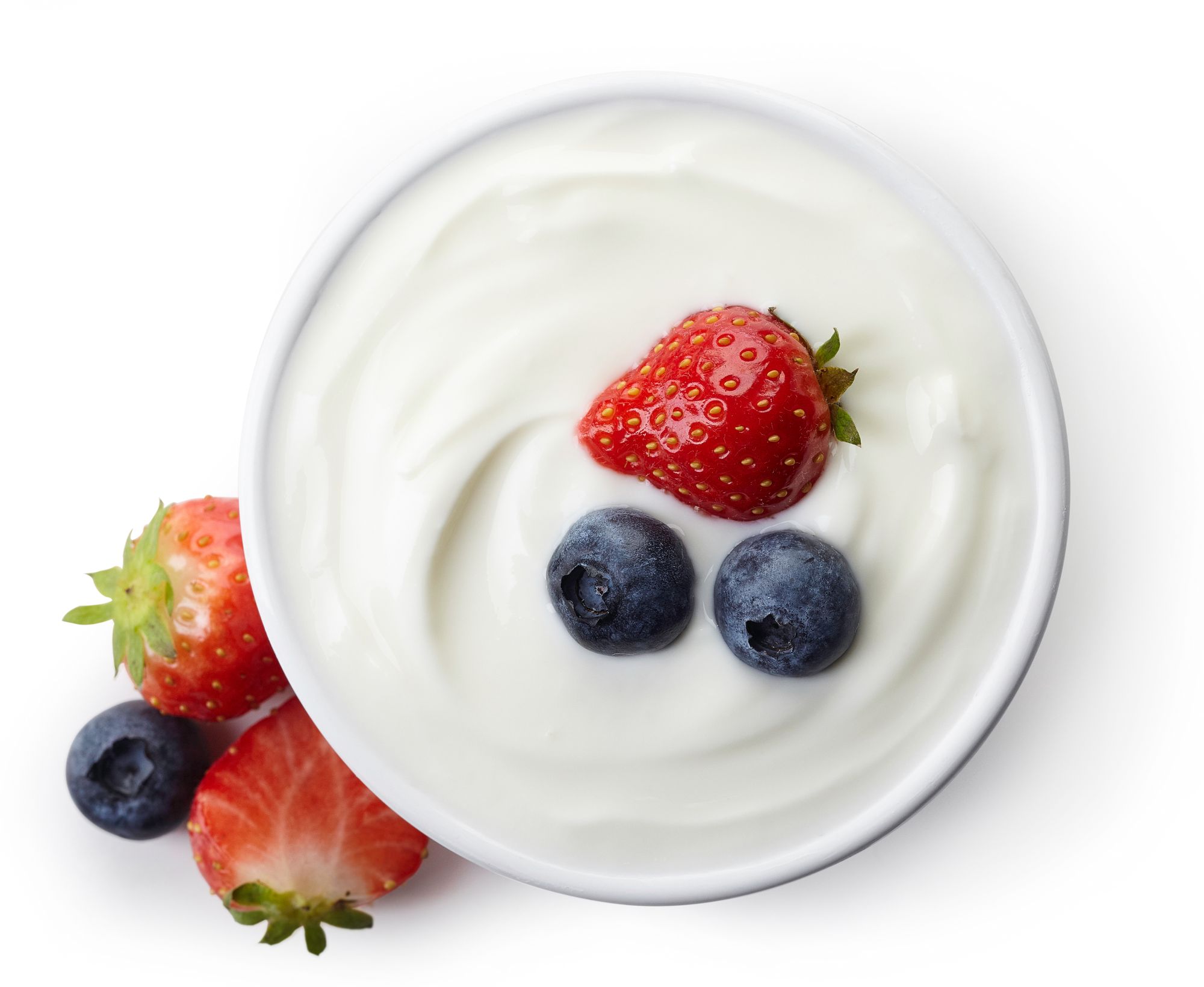
In a 5.3-ounce container of plain, whole-milk Greek yogurt, you'll find 146 calories, 7.5 grams of fat (3.5 grams of saturated fat), 53 milligrams of sodium, 6 grams of carbohydrates (0 grams of fiber, 6 grams of sugar), and an impressive 13.5 grams of protein. Greek yogurt is an excellent animal protein alternative, abundant in vital nutrients. Caroline L. Young, MS, RD, LD, RYT of Whole Self Nutrition highlights that Greek yogurt not only boasts probiotics but also essential nutrients like calcium and vitamin D, making it a nutritionally well-rounded choice. Moreover, it is a protein powerhouse. While opting for non-fat Greek yogurt can reduce saturated fat and calories, Young suggests that full-fat versions offer greater satisfaction and enhanced flavor.
2) Eggs

One large whole egg provides 72 calories, 5 grams of fat (1.6 grams of saturated fat), 65 milligrams of sodium, 0 grams of carbohydrates (0 grams of fiber, 0 grams of sugar), and an impressive 6 grams of protein. Eggs are a versatile and cost-effective source of protein that can be enjoyed in various culinary preparations, including hard-boiled, scrambled, sunny side up, or incorporated into baked goods, among other options. A single egg delivers 6 grams of protein and serves as a valuable source of several B vitamins and selenium. Additionally, it supplies 31% of the Daily Value (DV) for choline, a mineral essential for lipid metabolism, brain health, and fetal brain development.

